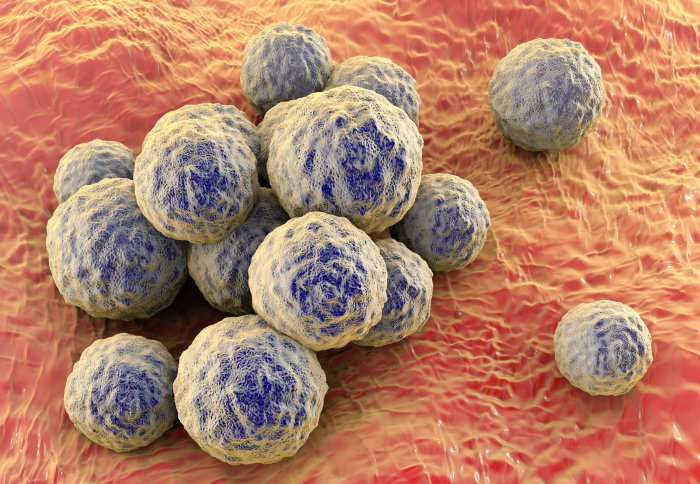Imperial researchers reverse antibiotic resistance in MRSA in the lab
by Prof Ed Tate

Researchers from the Departments of Chemistry and Medicine have teamed up to tackle the threat posed by antibiotic-resistant bacteria.
Supported by the EPSRC EMBRACE initiative and an Imperial Confidence in Concept award, members of Professor Ed Tate’s group (Chemistry) have been working closely with the group of Dr Andy Edwards (Medicine) to devise ways of reversing antibiotic resistance in bacterial pathogens.
The work, published in the journal Bioorganic and Medicinal Chemistry, describes the development of a small molecule inhibitor of bacterial DNA repair that reversed resistance to the antibiotic ciprofloxacin in MRSA, a major cause of serious infections in hospitals and care homes.
The research took a multidisciplinary approach to combating antibiotic resistance, with a major contribution from past and present Imperial MRes in Drug Discovery students (Carine Lim, Leigh-Anne Gavin and Declan Cook), supervised by senior authors Dr Tom Lanyon-Hogg and Dr Lindsay Evans.
Together with PhD students and postdoctoral researchers in the Tate and Edwards labs, the team assembled expertise in medicinal chemistry, chemical biology, molecular biology and microbiology.
Dr Edwards said: "This work is really exciting because it shows that drug-like small molecules can reverse antibiotic resistance in clinically-important bacterial pathogens, and it’s provided an excellent opportunity to learn how to work closely with people with different skill sets to tackle the crisis of antibiotic resistance."
The work is currently being further developed to investigate whether the approach can be applied to other bacterial pathogens and antibiotic classes. It is hoped that this work will lead to new therapeutic approaches to reverse antibiotic resistance in patients and thereby preserve our existing stocks of medicines for future generations.
-
Top image: Illustration of MRSA. Credit: Kateryna Kon/Shutterstock
Article text (excluding photos or graphics) © Imperial College London.
Photos and graphics subject to third party copyright used with permission or © Imperial College London.
Reporter
Prof Ed Tate
Department of Chemistry